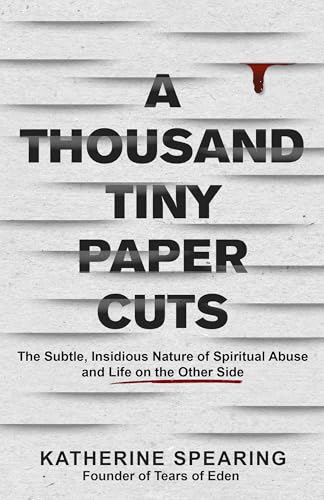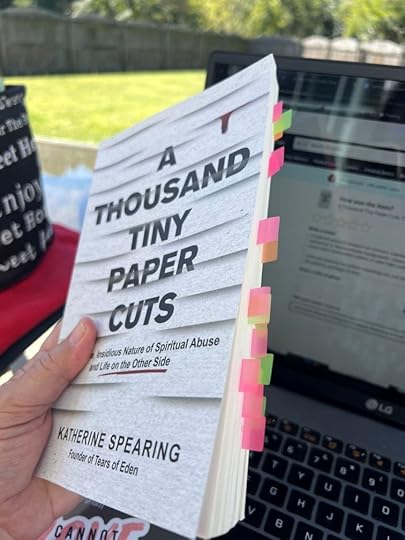What do you think?
Rate this book


269 pages, Kindle Edition
Published October 14, 2025

“Spiritual abuse affects everything. Understandably, it causes existential and spiritual impact. But we don't always talk about the other areas of our lives that experience destruction... It causes monumental damage. We will never be the same. The thousand tiny papercuts of this insidious form of abuse may start to heal, but the scars—they're permanent. This may be reality, but there's another reality: Thriving after abuse isn't contingent on being fully healed. We can live thriving full lives, even while our bodies are healing.”
“Two focuses that aid the healing process on the other side of spiritual abuse are validation and finding and creating the language to name what happened to us... Having language to name the experience is a form of validation. 'Oh, there's a term for that? It's an actual thing?' To further this validation is the experience of encountering others who have been there. Who believe us. Who can tell us what happened to us mattered, and mattered, and mattered.”